A new exhibition dedicated to Alberto Biasi (Padua, Italy, 1937) one of the most representative figures of international optical-dynamic art, lands in Milan from May 27 to September 13, 2025, in the spaces of Dep Art Gallery. Entitled Alberto Biasi. Politypi, the exhibition, curated by Federico Sardella and realized in collaboration with the Alberto Biasi Archive, is the fourth monographic exhibition that the gallery dedicates to the Paduan artist, born in 1937 and protagonist since the 1960s of radical research on perception, movement and the interaction between light, space and color.
The fulcrum of the exhibition is the Politipi series, a body of work that Biasi developed beginning in the late 1960s and that constitutes one of the highest and most innovative moments of his artistic production. These works, as the term itself suggests-which refers to the idea of multiplicity, amalgamation and interaction-are three-dimensional structures in which different elements are superimposed to create optical effects of depth, dynamism and chromatic vibration. These are works that challenge the traditional boundaries of painting and sculpture, developing into a hybrid space, somewhere between object and painting, between relief and installation.
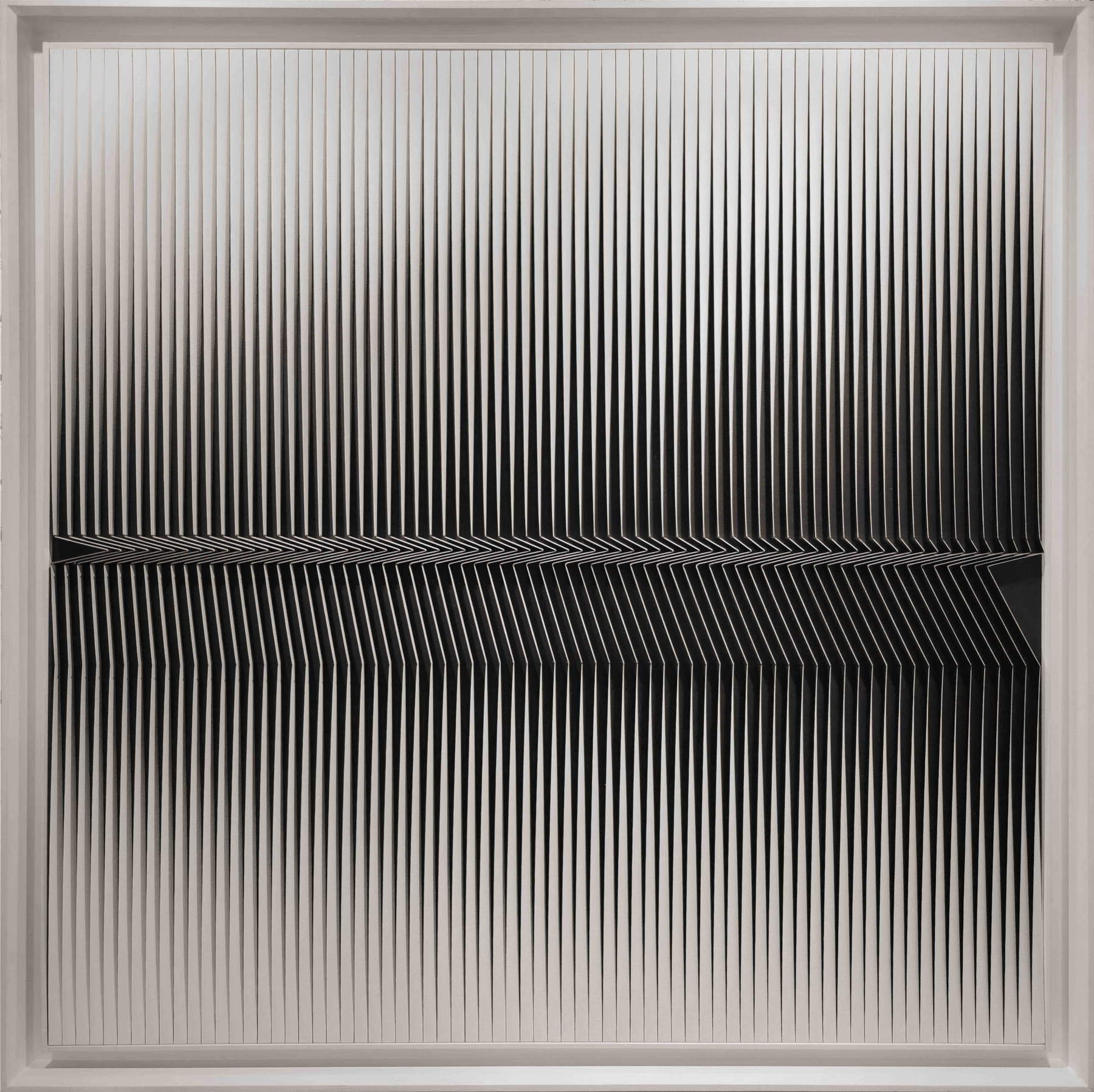
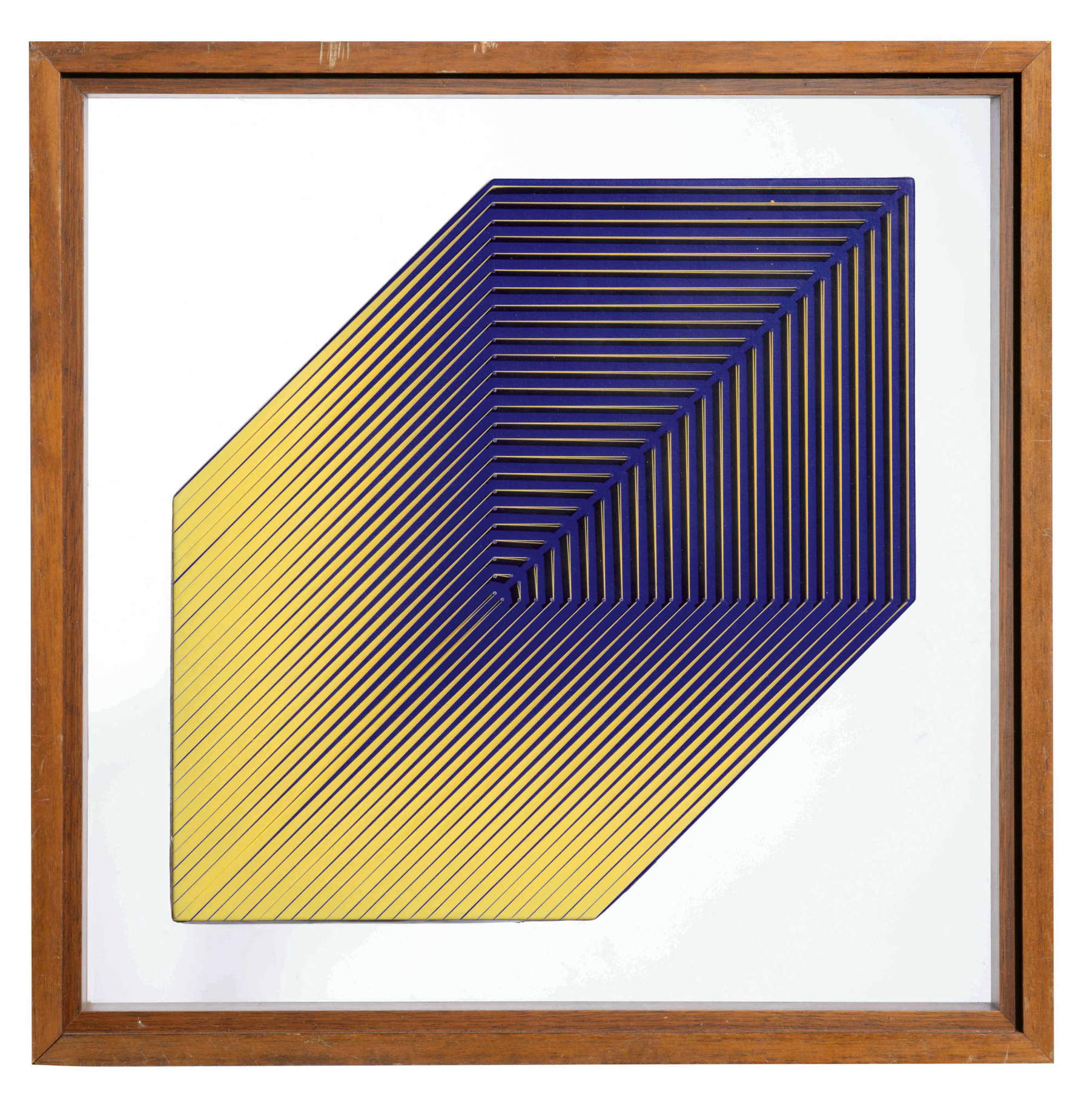
“Art is not only a matter of form, but also of energy and movement,” says Biasi himself, and in the Politipi this idea is translated into a sensory experience that actively involves the viewer. Visual interaction is central: the works change depending on the point of observation, inviting the eye to grasp the continuous variation and metamorphosis of form. Each passage of light, each movement of the body in front of the work generates new perceptions, continually redefining the boundary between the visible and the intuitable.
The works in the exhibition testify to the extraordinary consistency and, at the same time, the evolution of Biasi’s poetics. From the early experiments of the 1950s to the more mature developments of the following decades, the artist has never ceased to question the possibilities of expanding aesthetic experience beyond the two-dimensionality of the canvas. In the Politypes, this need is embodied in a strict balance between structure and painterliness. Although these are object works, constructed through the assemblage of industrial materials such as PVC, painting is prominently present, helping to create surfaces that vibrate with light, reflections, and color.
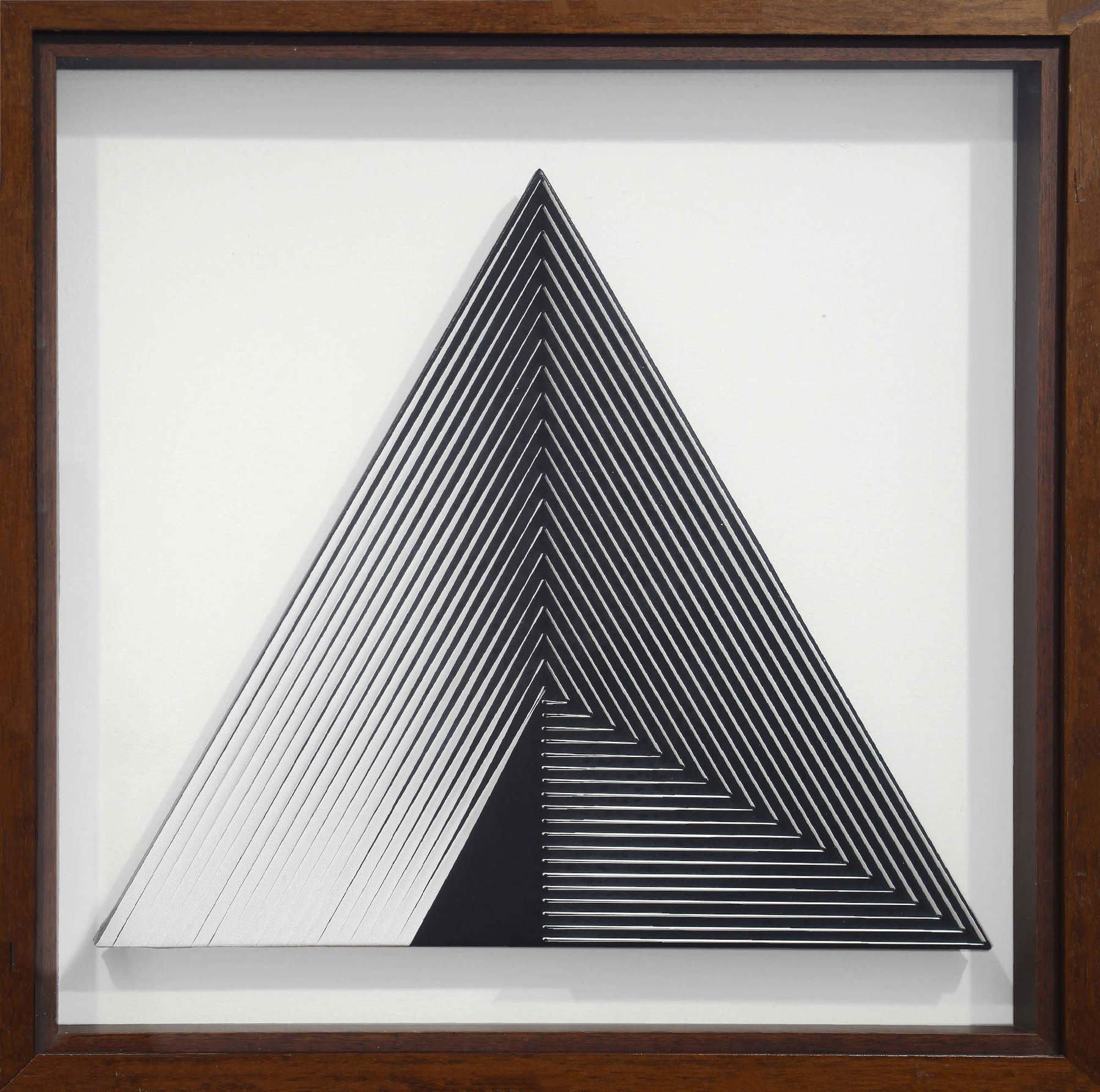
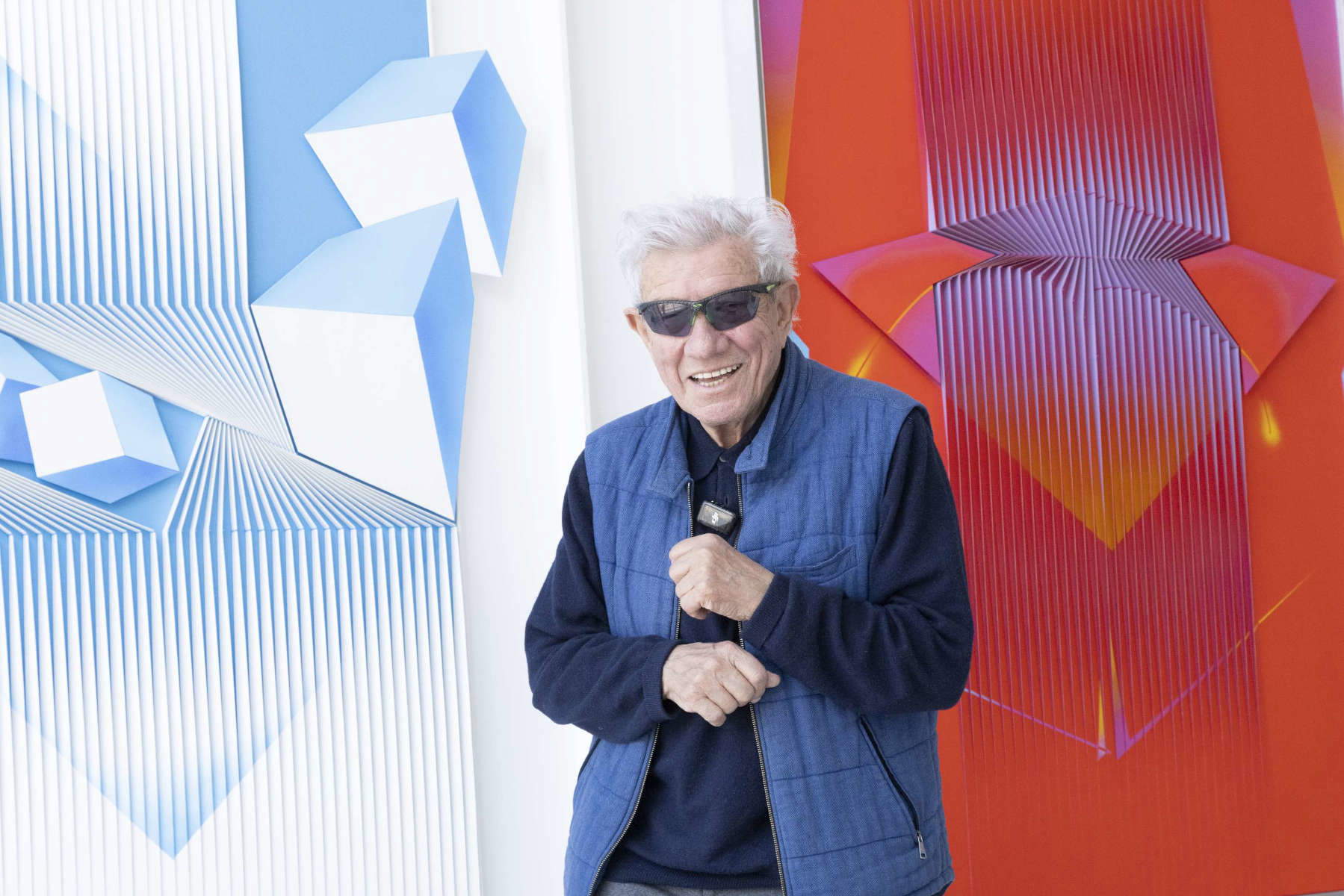
It is precisely the use of PVC-plastic, flexible, industrial-that allows Biasi to experiment with a wide range of visual effects. The strips of the material are manipulated, twisted, arranged in sequences that break their vertical regularity, and in so doing transform the surface of the work into a dynamic field, traversed by luminous tensions. This structural basis is joined by the pictorial intervention, which is never incidental, but acts in perfect synergy with the material, generating iridescent chromatic configurations.
The title of the series itself takes on a symbolic and semantic value. In typography or computer science, the term “polytype” refers to the union of several characters for perceptual purposes. Similarly, in Biasi’s works, this union is translated into a sophisticated play of combinations, overlaps and fusions between materials, techniques and languages, which aim to produce a new form of expression, capable of merging the rationality of design with the sensuality of perception.
The exhibition is also an opportunity to present a bilingual volume, Italian and English, produced in collaboration with the artist. The catalog collects all the works on display and includes a long and in-depth dialogue between Alberto Biasi and curator Federico Sardella, held in the artist’s studio in Padua in April 2025.
For all information, you can visit the official website of Dep Art Gallery.
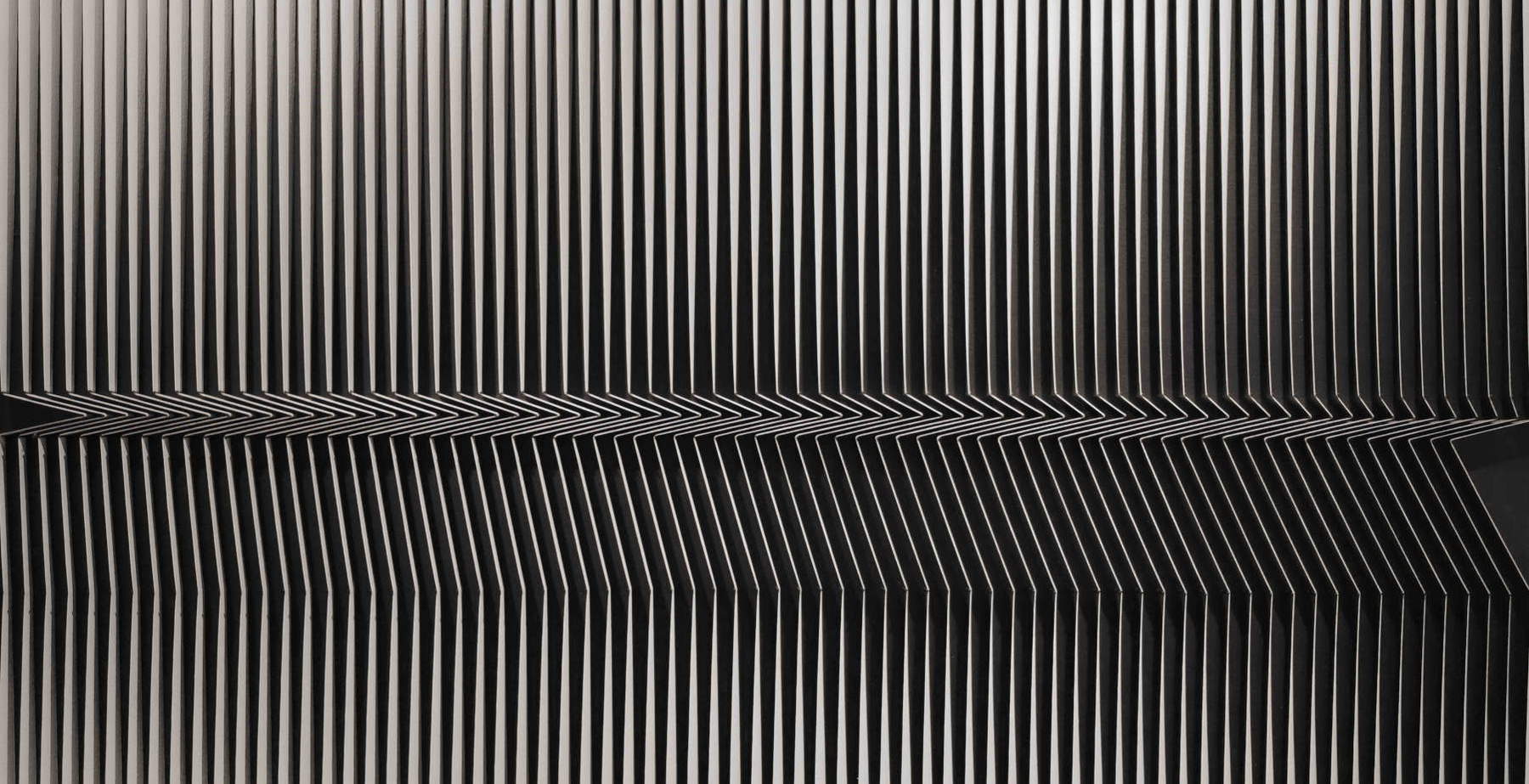 |
| Alberto Biasi and his Politypes on display at Milan's Dep Art Gallery |
Warning: the translation into English of the original Italian article was created using automatic tools. We undertake to review all articles, but we do not guarantee the total absence of inaccuracies in the translation due to the program. You can find the original by clicking on the ITA button. If you find any mistake,please contact us.